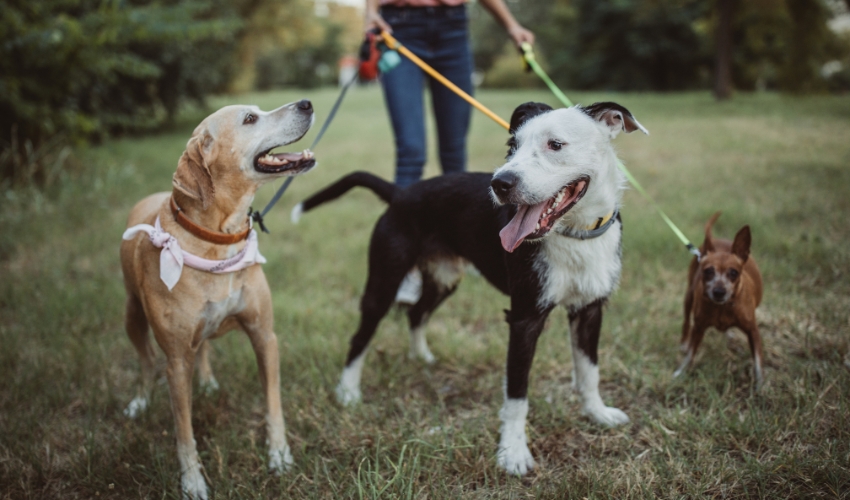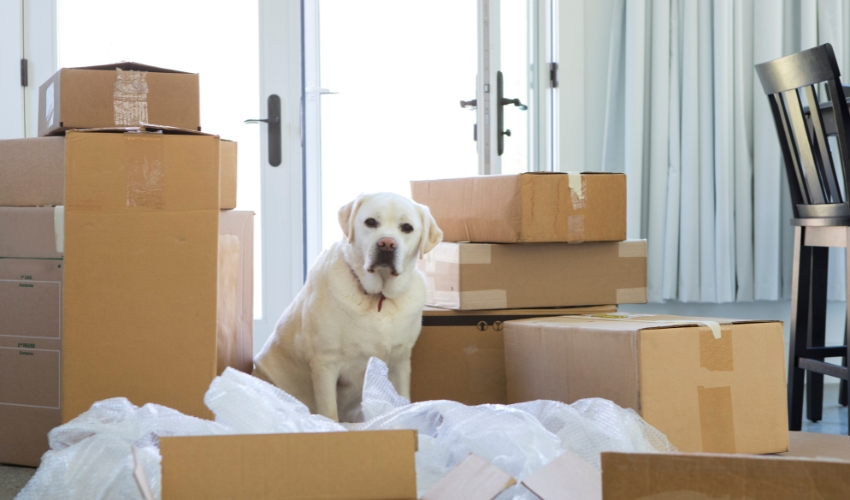We hate drama! We know you do too!
No matter where we go in life, there always seems to be drama. Drama on our commute to work; drama with our colleagues at work; drama with our family; drama in animal rescue…wait what? Yes there is plenty of drama to be found in animal rescue. But at least on animal rescue transport, we’ve got the guide to get you through it.
Drama point #1 – Will all of the rescue relay transport legs fill?
Animal rescue is hard and sometimes complicated. After all there is no Amazon Prime for transporting live animals across the country. That’s why when there is a long-distance rescue relay transport with multiple “legs” of the journey there is a certain apprehension that we will find enough volunteers in particular areas to fill the transport. A rescue relay doesn’t work so well when there are breaks in the chain of volunteers.
Particularly on the longer distance or more time sensitive transports the drama factor rises proportional to the people behind the scenes coordinating it. You’ve likely seen the escalation words like “urgent”, “code red”, “will die tomorrow” and other variations therein to try and grab your attention in an email or social media post. These statements are usually written by animal rescuers that are not prepared or familiar with how rescue relay transport works and so they amp up the drama to get some attention and to satisfy their needs.
Likely when you see that “run will fail”, or “legs not filling” your heart skips a beat and you might snap to attention to see if there’s something that you can do to help. Certainly we would never tell you NOT to help out if you’re able but we just want to emphasize that this is a tactic that is frequently used to amp up the drama quotient and get your anxiety going that you didn’t do something.
Drama diffuser – Let the “amped up air” out through your calming presence
The best way to diffuse the amping up of rhetoric around a rescue relay transport is to not feed into it. Sure the first time a transport coordinator or animal rescue organization urgently asks for your help you might jump in and revamp your schedule to accommodate a specific situation. Emergencies do happen after all and it’s not always their fault. But if the rescue relay coordinator or local animal shelter persistently is urgently asking for help you need to realize that it’s likely more about them than the actual situation at hand. Sadly, for some people, urgency is their only mode of operating and it brings them the attention that they want so they keep doing it.
The key to this drama diffuser is to resist the urge to join into the pity party and instead de-escalate the drama with a calming presence and reply. Take a deep breath and let the calm you’re experiencing rub off on the drama creator. Inquire about the specific situation and suggest alternatives like another day, time or method of transport. Be prepared for the curt reply and know that you may have to walk away if they continue to escalate the drama.
In the words an experienced animal rescuer once told me, “Remember, that you did not put the animal in this situation and you should not solely take on the stress and responsibility to alleviate the gap. This is not a problem fixed by one transport leg, one animal or one animal rescue volunteer. You cannot solve this problem by constantly being in reactive mode.”
Drama point #2 – Will everyone show up?
 Ok great. You’ve got all of the legs covered on your rescue relay transport, and everything is planned out and communicated to all of the volunteers and organizations involved. But the transport isn’t taking place for another few days so can you count on everyone else to do their part? What happens if a volunteer doesn’t show up or if the animal is not available to transport? Who’s fault is it if the health certificate is not completed or if the planned transport animals suddenly come up sick?
Ok great. You’ve got all of the legs covered on your rescue relay transport, and everything is planned out and communicated to all of the volunteers and organizations involved. But the transport isn’t taking place for another few days so can you count on everyone else to do their part? What happens if a volunteer doesn’t show up or if the animal is not available to transport? Who’s fault is it if the health certificate is not completed or if the planned transport animals suddenly come up sick?
One of the most common reasons for not attempting a rescue relay transport is the perceived fear that a volunteer will not show up and the relay will be broken somewhere in the middle. Yes, this does happen but with such infrequency that it’s hardly something worth tracking. The best transports are the ones that are well organized, and well communicated by the coordinator. But if you do find yourself with this fear or even in this situation, you can take action to diffuse the drama.
Drama diffuser – Keep calm and carry on
 Let’s say you find yourself in the situation where a volunteer does not show up at the designated hand-off location for the relay transport. You’ve called the transport coordinator and the driver you’re supposed to meet, but nobody seems to know where they are. Everything feels like it’s crashing down around you. You can’t take these animals home with you, and you can’t drive them the rest of the way to the next leg due to other commitments. What’s a girl to do?
Let’s say you find yourself in the situation where a volunteer does not show up at the designated hand-off location for the relay transport. You’ve called the transport coordinator and the driver you’re supposed to meet, but nobody seems to know where they are. Everything feels like it’s crashing down around you. You can’t take these animals home with you, and you can’t drive them the rest of the way to the next leg due to other commitments. What’s a girl to do?
There are many volunteers that are a part of animal rescue that would gladly help in these unexpected situations so the first step is to not panic. Contact the transport coordinator and together you can work through the plan of action. The TC might be able to quickly identify other volunteers in the area that could help by meeting you and driving to the next meeting place. You could contact the transporter from the next leg and see if they could meet you 1/2 way so you both drive just a little further. Or maybe there’s an emergency foster home in the local area that can temporarily house the animals for the night. In short, you have options that will be clearer to see if you remain calm.
Drama point #3 – Will I forget to do something or bring something?
 A common fear of new animal rescue transporters is that they will forget something. They fear that if they forget a leash, collar, waste bags, puppy pads, gloves, or rescue remedy that the transport may be a failure and they along with it. They are fearful that if they forget to follow the instructions from the transport coordinator regarding the specific of these animals, that something bad will happen.
A common fear of new animal rescue transporters is that they will forget something. They fear that if they forget a leash, collar, waste bags, puppy pads, gloves, or rescue remedy that the transport may be a failure and they along with it. They are fearful that if they forget to follow the instructions from the transport coordinator regarding the specific of these animals, that something bad will happen.
Drama diffuser – Remember everyone had a first time.
Those of you seasoned transport volunteers out there are probably snickering to yourself remembering the first time you volunteered on a transport. You remember that feeling of doubt, fear and guilt that something did not go according to plan. And you know now that you were able to get through it and you’ve learned so much more since then.
So if you’re feeling fearful, and that drama is swelling up in you, relax and remember that we’ve all been there. We survived and so will you!
Congratulations! Your animal rescue transport is drama free!
You are now free to sprinkle your drama free self into other areas of the world.
You’re welcome.













